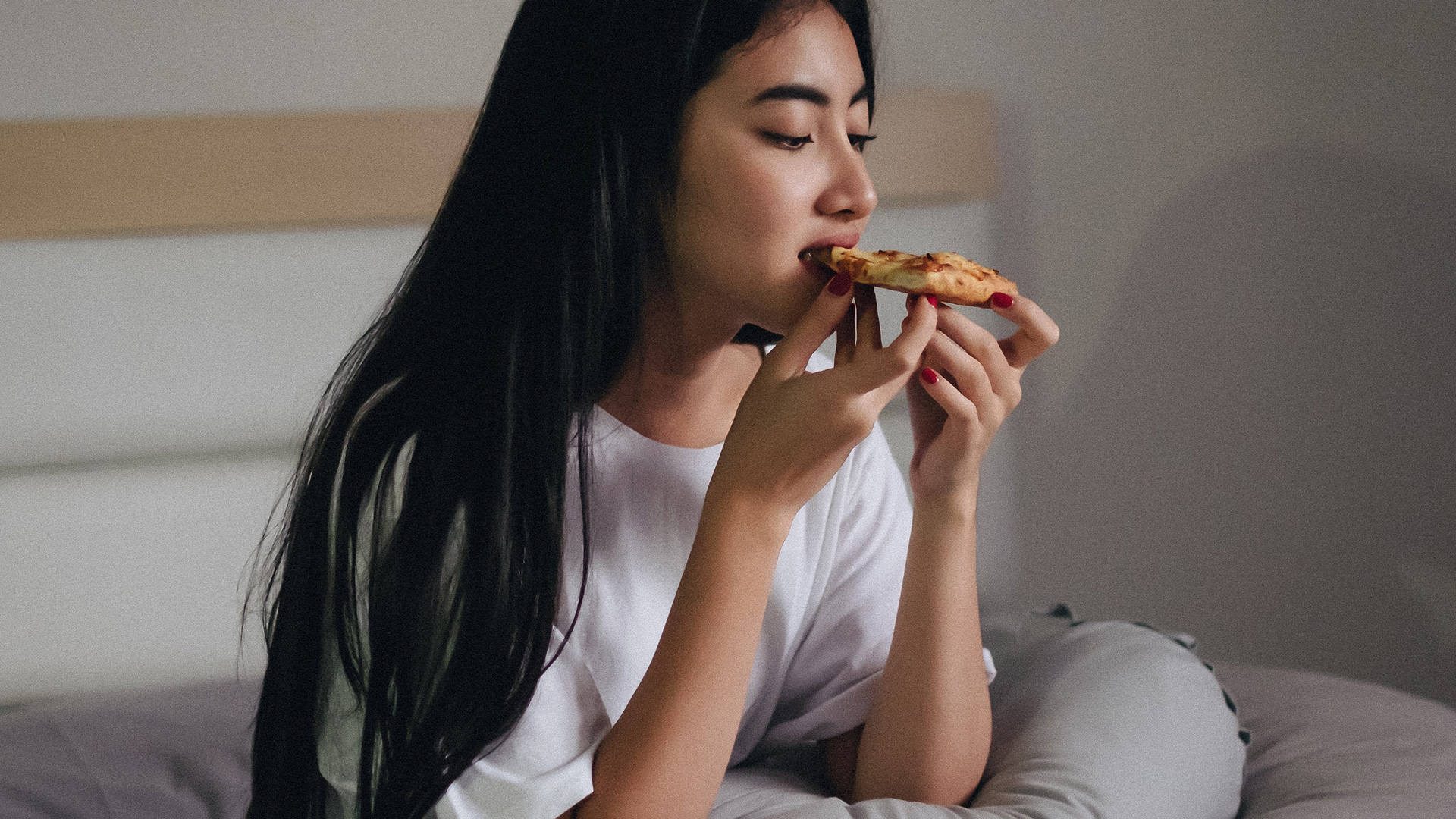
Having trouble sleeping? Then maybe your diet is to blame. In this article, we'll look at changes you can make to give your body a better chance of getting a good night's kip, night after night. These are the foods you should be eating (and the ones to avoid) to improve your sleep habits.
Of course, there are many other causes of sleep deprivation. But if you've invested in the best mattress, taken heed of our tips on how to sleep better, and ruled out these reasons you might be waking up at night, the next place to turn might be your diet.
Let's begin by looking at how your general food habits influence your ability to sleep, then we'll reveal six foods that could help you sleep better.
- Wearing THIS material to bed could help you sleep better
- Try one of the best weighted blankets, to reduce stress and fight insomnia
- Wake up more gently with one of the best wake up lights
Foods to avoid for better sleep
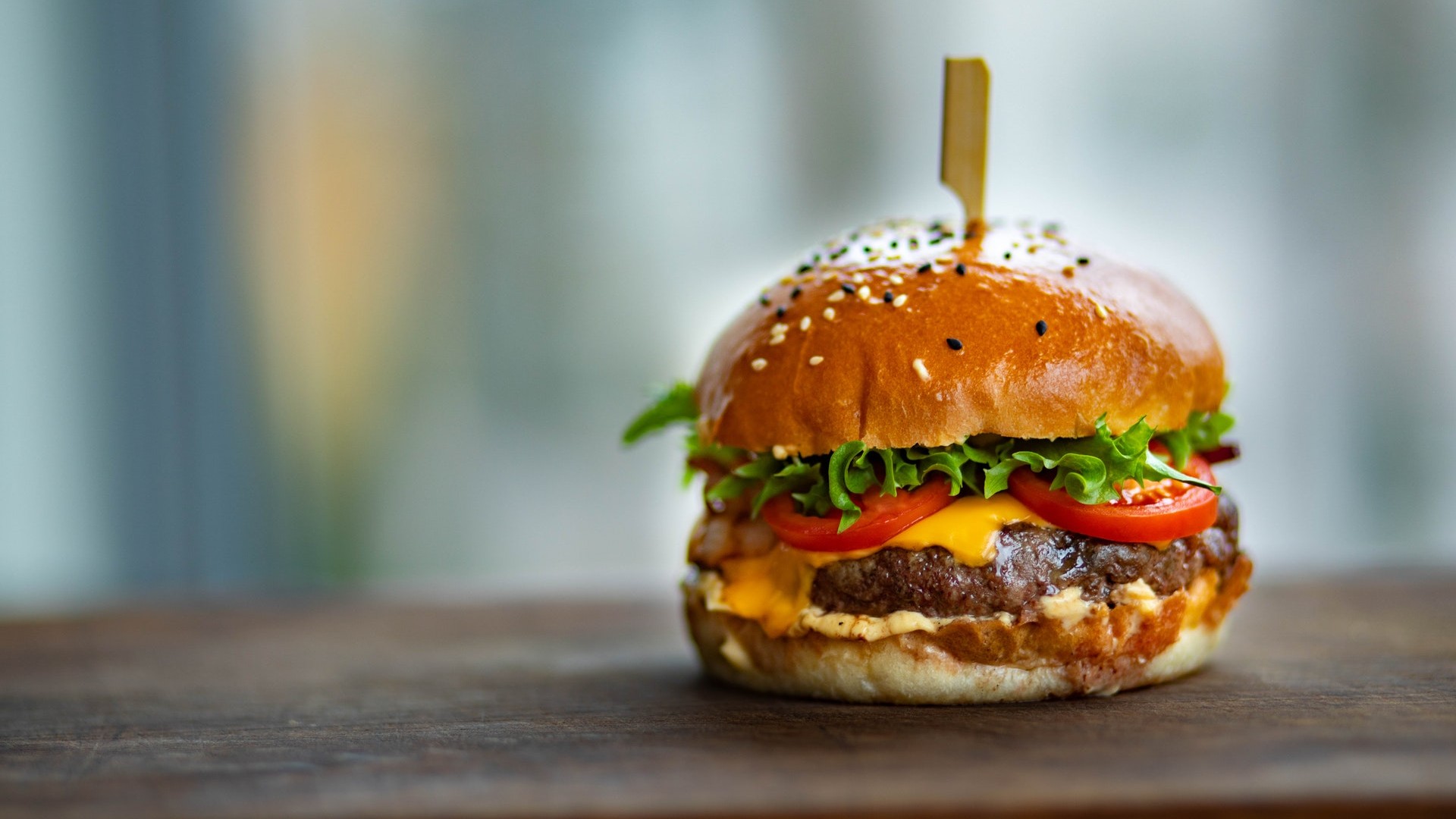
If you have a habit of eating processed foods, and other foods that are high in calories, sugar and fat, you shouldn’t be surprised if you have problems sleeping. These types of foods, which are known as high glycaemic index (GI), are broken down quickly by your body, causing a rapid spike in blood sugar. That feels nice while it's happening, but it's invariably followed by a sudden crash later, which just makes you crave more food.
As well as encouraging diabetes and obesity, this can mess with your body’s circadian rhythms, which makes it more difficult to get a good night’s sleep. This in turn, makes you feel you lack energy, which encourages you to eat more, which leads to a vicious circle of poor sleep and binge-eating.
High GI foods include sugar, sugary foods, sugary soft drinks, white bread, potatoes, white rice, processed meats, and snacks such as biscuits, cakes, crisps and sweets. It’s not necessary to avoid such foods altogether, but if you’re having problems sleeping then at the very least you need to eat these in moderation.
- How to stop snoring: top tips for a peaceful slumber
Foods that will help you get better sleep
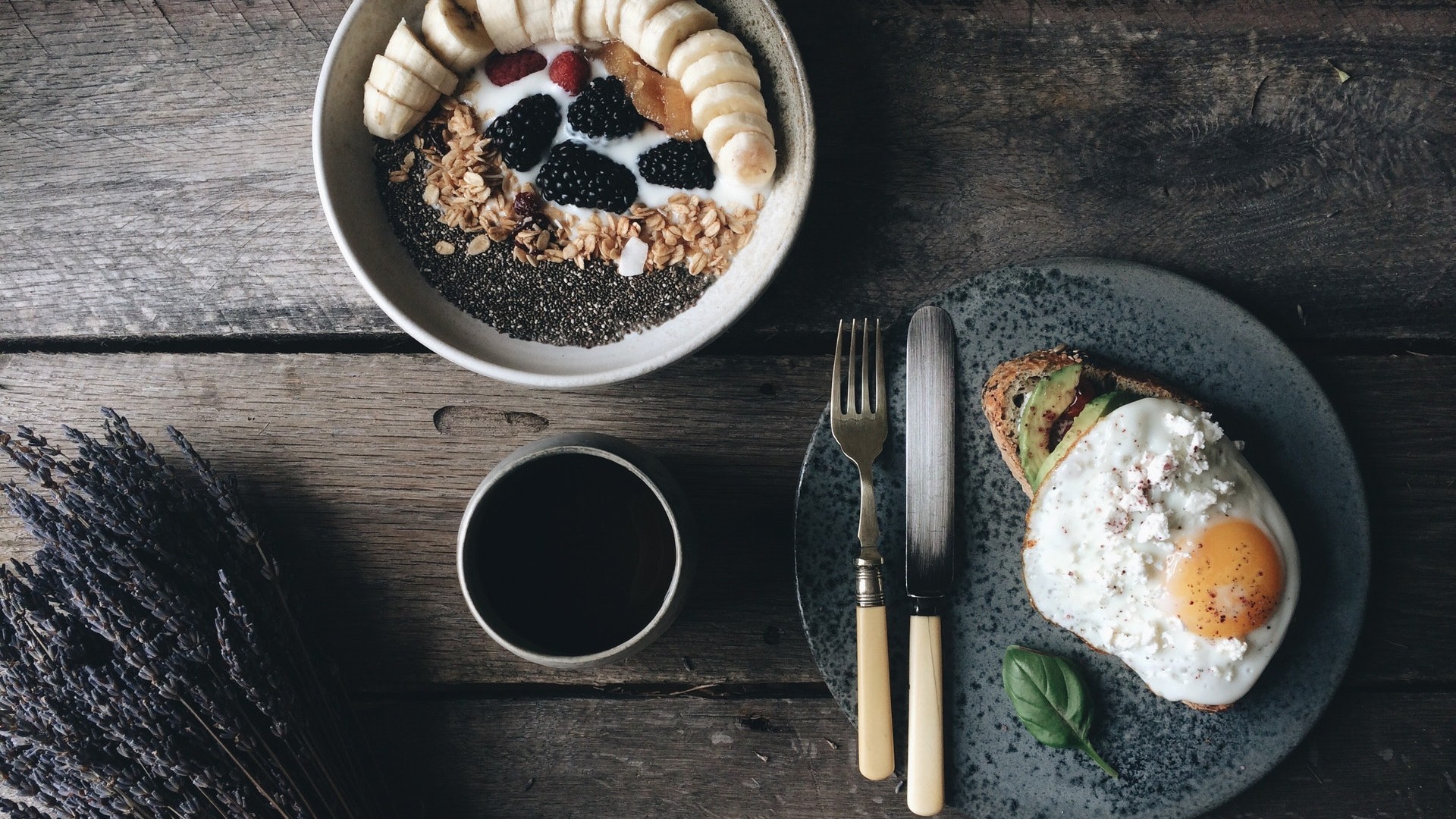
If you really want to get a handle on your blood sugar then you need to include a lot of low GI and medium GI foods to your regular diet. These are broken down more slowly by the body, and cause a gradual rise in blood sugar levels over time.
Get all the latest news, reviews, deals and buying guides on gorgeous tech, home and active products from the T3 experts
Examples of medium GI foods include orange juice, honey, basmati rice and wholemeal bread, while low GI foods include unprocessed fish and meat, eggs, soy products, beans, fruit, milk, pasta, grainy bread, oats, and lentils. However, if such foods are roasted or fried in lots of fat then they'll then become high GI, so alternative methods such as steaming and baking are better if possible.
Of course, a little bit of what you fancy does you good, as they say, so you don’t need to get obsessed and try to be an angel. As long as you aim to eat a balanced diet, which may include low, medium and high GI foods – and should include at least five portions of fruit and vegetables a day – you should be able to avoid the kind of blood sugar spikes that lead to poor sleep patterns.
Another thing that can damage your sleep is too much stimulation from caffeine. So if you’re having problems sleeping, try cutting down not just on coffee but other sources of caffeine including tea and chocolate.
Getting the timing right
It’s not just about what you eat but when you eat it. The most important thing is to avoid eating less than three hours before bedtime, which will mean you’re still digesting your food when you’re sleeping.
This uses up vital bloodflow and energy that should be being used to repair your mind and body in the night, thus reducing the overall quality of sleep you enjoy. It may also lead to indigestion, heartburn, acid reflux and unnecessary trips to the bathroom, all of which will disrupt your sleep.
For these reasons you should particularly try to avoid large meals, fatty foods, spicy foods and alcohol in the three hours before you go to bed. Also steer clear of citrus fruits, which can increase the levels of acid in your stomach and keep you up at night with heartburn.
What food will help you sleep?
As long as you follow the advice given so far, food and drink-related issues should no longer be keeping you awake at night. If you still need a little help getting to sleep, though, the following foods are widely believed to help.
We say 'believed' because actually there’s no conclusive scientific proof that any of them work... yet, anyway. That said, none of them have as yet been disproved, and there are some studies that suggest they do, so there’s no harm in trying.
1. Fish
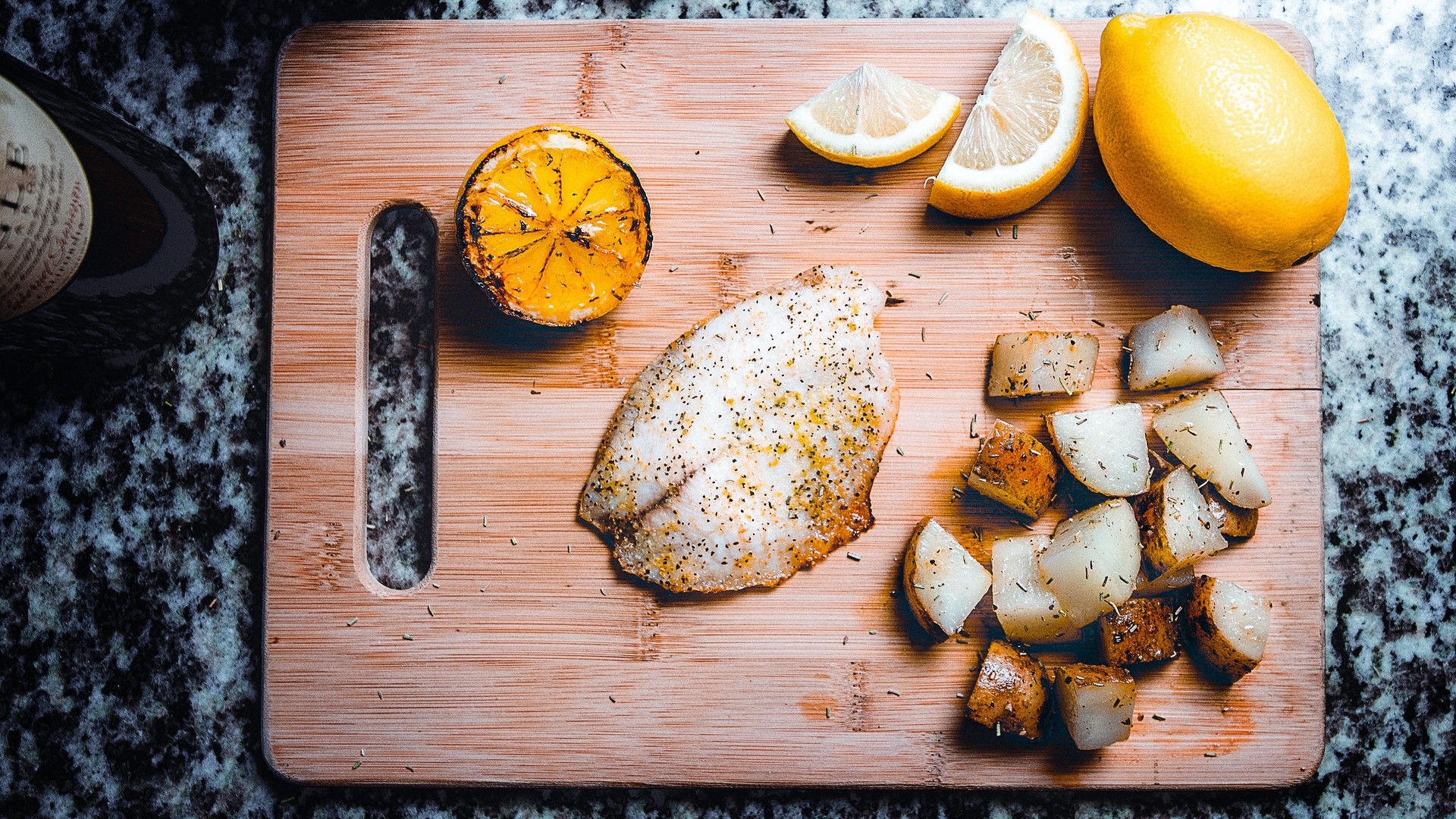
Fish is high in vitamin B6, which encourages the production of the sleep hormone melatonin. Fatty fish is also a good source of vitamin D and omega-3 fatty acids, which are important in the production of the ‘happiness hormone’ serotonin, which is known to aid sleep. So you’d expect eating fish to help you sleep, and there’s a fair bit of research suggesting this might be true.
For instance, one study found an association between consistent fish consumption and high sleep quality among Chinese schoolchildren, not to mention higher IQs. And another study found that people who ate salmon three times per week enjoyed better sleep, as well as improved daytime functioning.
Vegetarians and vegans don’t need to feel conflicted though: you can also get B6 from leafy green vegetables such as spinach and cabbage, and Vitamin D from mushrooms and a range of fortified products such as fortified soy milk and fortified cereal.
2. Bananas
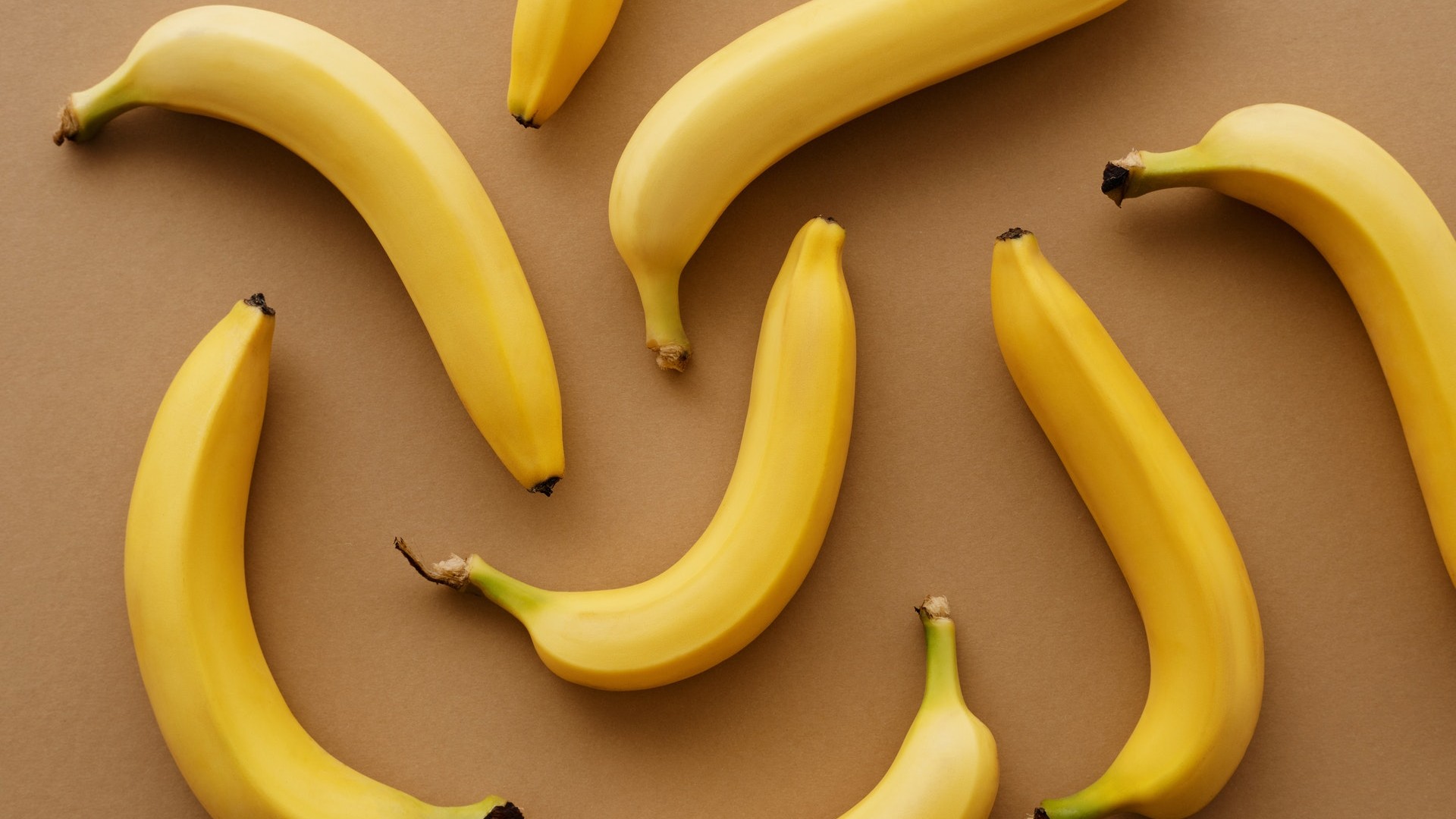
Another place to find vitamin B6 is bananas: just one contains 33 percent of your daily requirement. What’s more, bananas also contain magnesium, which has been linked to lower stress levels; potassium, which acts as a muscle-relaxant; and melatonin itself.
For these reasons, bananas are widely believed to encourage better sleep. One study found that banana consumption could significantly increase the concentration of melatonin in people’s blood after 120 minutes.
3. Almonds
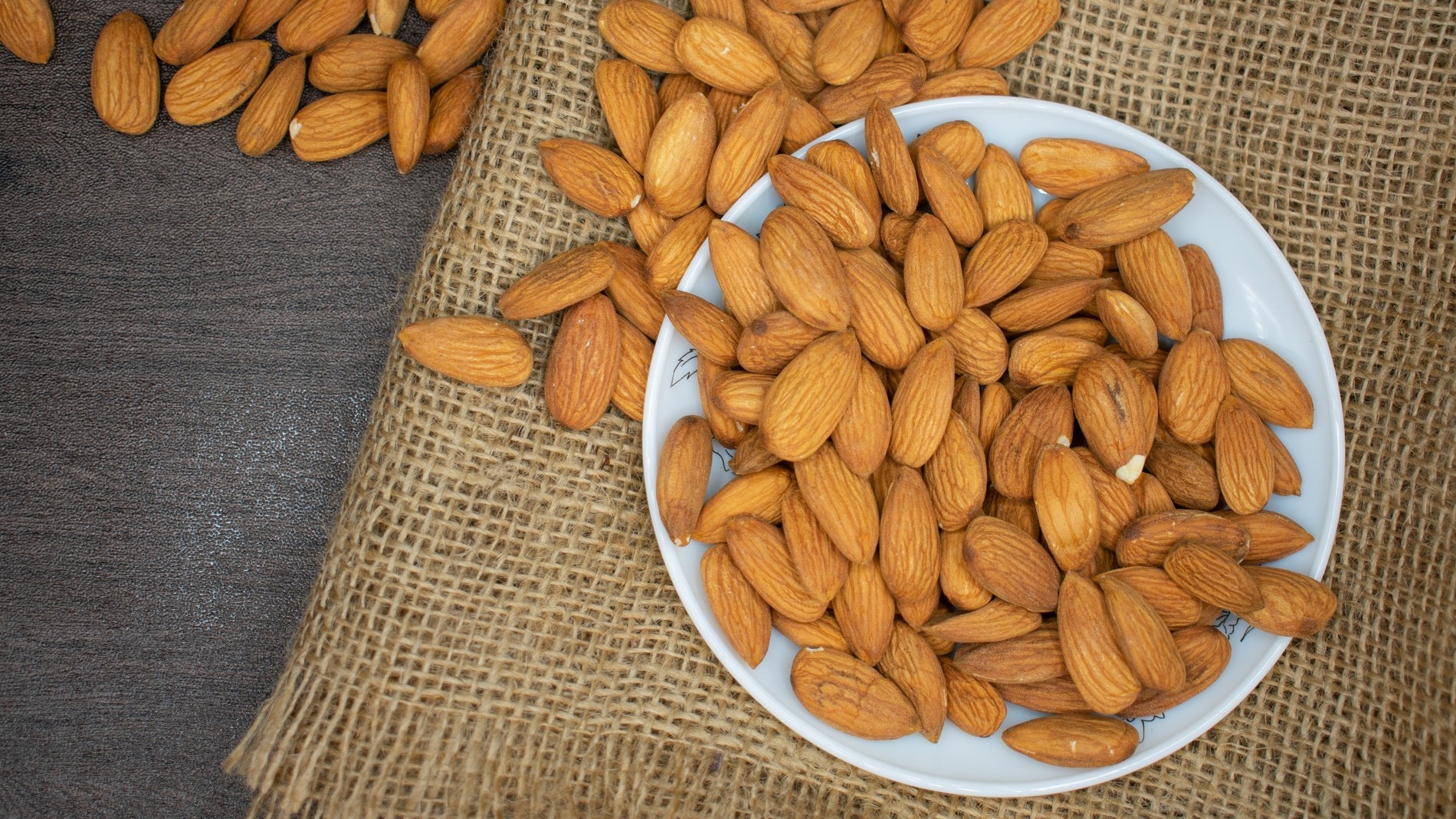
Almonds aren’t just a good, low-fat source of protein that can help to stabilize blood sugar as part of a balanced diet. It also contains magnesium, tryptophan, an amino acid that plays a central role in the production of serotonin, and large amounts of melatonin. One study found that feeding rats 400mg of almond extract led to them sleeping longer and more deeply.
If you do crave a late-night snack, then, almonds are a far better choice than sugary or fatty alternatives. If you’re not a fan though, other nuts such as walnuts, pistachios and cashews have similar qualities, as do seeds such as flax seeds, pumpkin seeds, and sunflower seeds.
4. Milk, dairy and soy milk
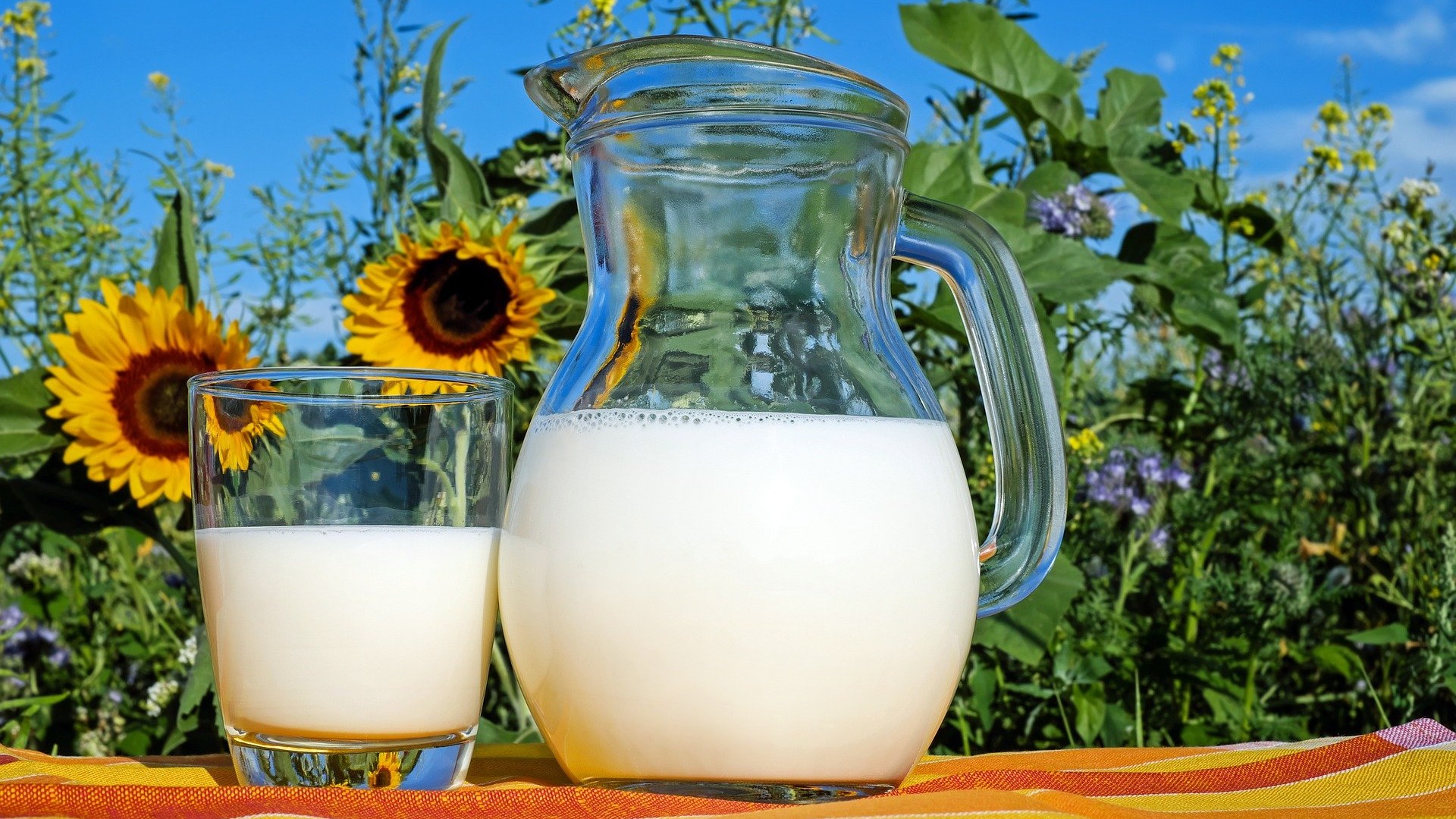
Warm milk has been believed for generations to help you sleep, and that’s not surprising. Not only does it contain tryptophan, but the calcium it also contains helps our bodies to harness said tryptophan to manufacture melatonin. It also contains melatonin itself.
The same goes for other dairy products including cheese and yoghurt, as long as they’re consumed in moderation. And vegans don’t need to miss out, either: soy milk contains tryptophan, too, and research suggests it can also have a sleep-inducing effect.
5. Sour cherry juice
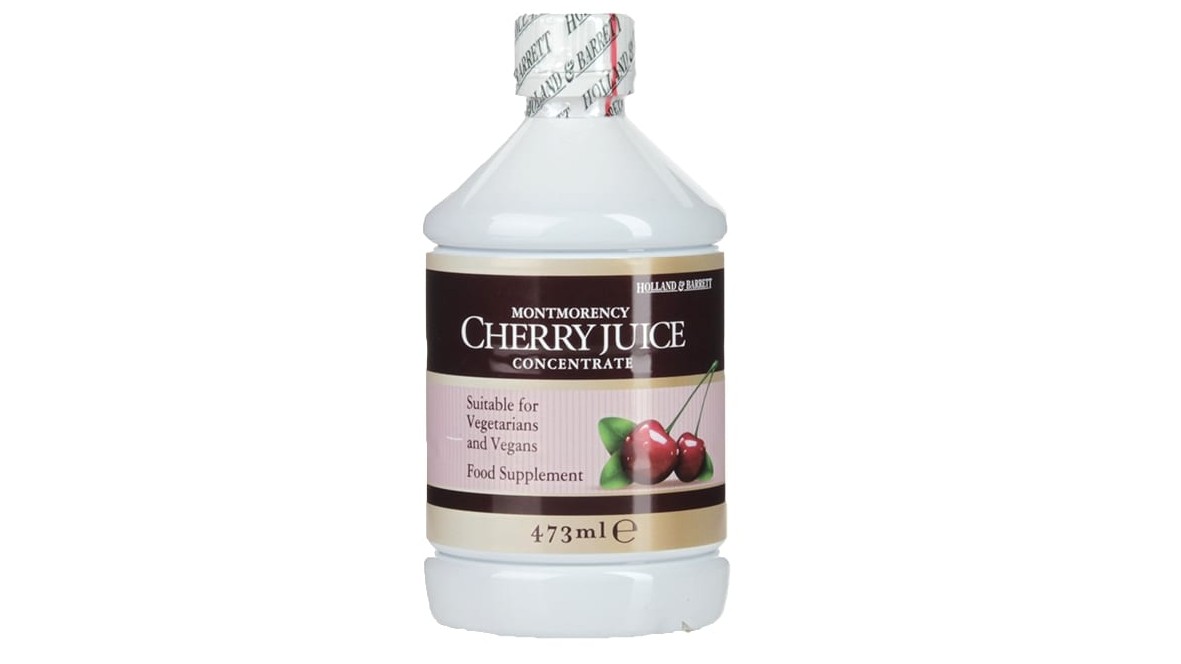
Generally, sweet foods have a destabilising effect on blood sugar and are unlikely to encourage sleep; and sweet cherries are no exception. Sour cherries, also known as tart cherries or dwarf cherries, are different.
Varieties such as Richmond, Montmorency, and English Morello contain above-average concentrations of melatonin. And in some studies, such as this one, both tart cherries and their juice (when unsweetened) have been found to encourage sleep.
6. Chamomile tea
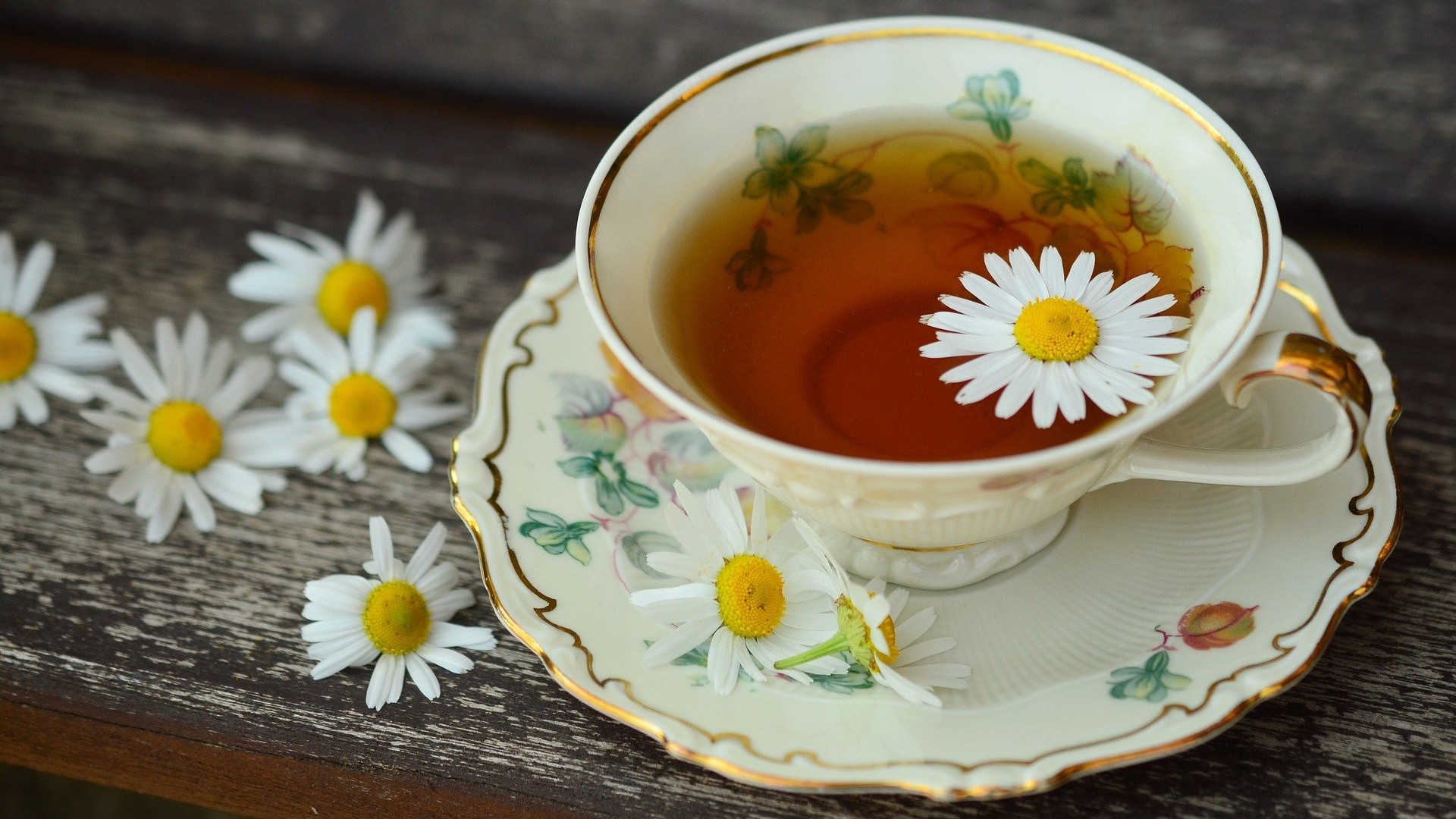
Tea is generally to be avoided late at night, as it contains caffeine which is a stimulant that can interfere with sleep. Chamomile tea, however, is a good alternative as it contains apigenin, a chemical compound that binds to specific receptors in your brain that decrease anxiety and initiate sleep. In one study, chamomile extract was found to help sleep-disturbed rats fall asleep.
- Browse the top mattresses for side sleepers
- ... and the best mattress for stomach sleepers
- Rise and shine with our pick of the best alarm clocks
Tom May is a freelance writer and author of the book, Great Ted Talks: Creativity. He has been editor of Professional Photography magazine, associate editor at Creative Bloq, and deputy editor at net magazine. He has also worked for a wide range of mainstream titles including Radio Times, NME, Heat, Company and Bella.

